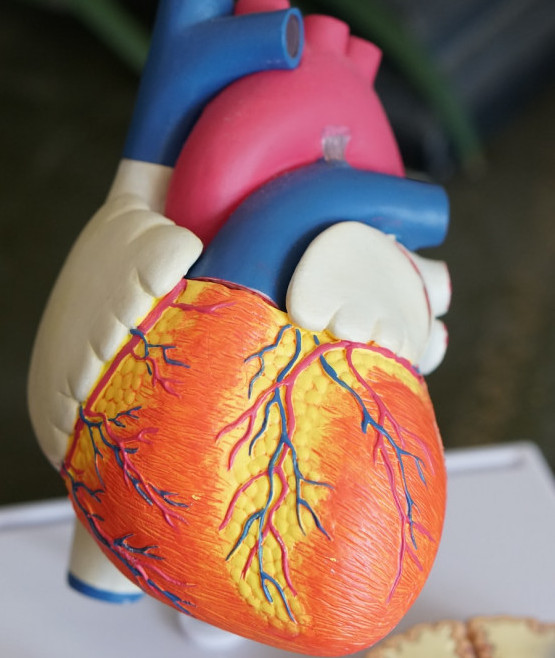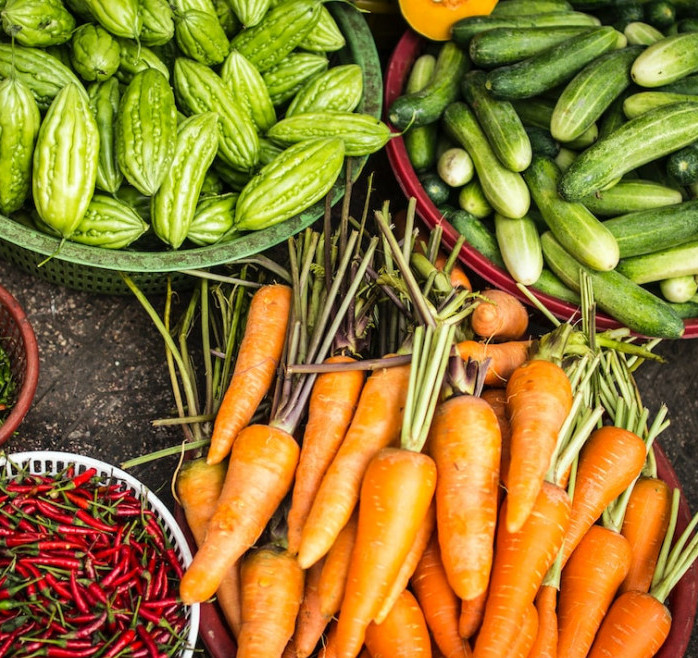What are the best foods to eat for a healthy gut? I have lots of experience trying to eat the best foods for my “gut,” having had stomach surgery years ago. But let’s take a look at what the “experts” say.
Why is a Healthy Gut Important? The “Science…”

The primary function of the digestive system is the delivery of vitamins, minerals, fats, and other important nutrients to the body.
The digestive system changes the food you eat and the liquid you drink, by breaking it down so that the nutrients can be absorbed into the cells. You obviously can’t take a carrot and hold it against your arm to feed your cells! That’s why we were created with a digestive system. It’s the only way to get the nutrients in foods to a place where they can be of benefit to us.
The circulatory system and the lymphatic system are also players in this operation – but the digestive system has the first “kick at the can.”
A healthy digestive system will determine if – or in what form – any nutrients in our food get to the cells. If the digestive system is functioning well, and if what we have given our digestive system to digest is healthy, the maximum nutrition will eventually get to our cells. There it can
- help prevent disease
- give us energy
- improve our skin appearance
- boost endorphins
and just in general create good health!
Don’t Sabotage Your Digestive System
The wrong foods will completely sabotage the digestive process. So it’s important to pay attention to what we eat, in particular.
If our digestive system isn’t functioning properly or has not been given the right foods, it can result in the following:
- lethargy
- bloating
- diarrhea
- constipation
- peptic ulcers
- celiac disease
- gallstones
- irritable bowel syndrome (IBS)
- chronic pain
- insomnia
- inflammation
- diabetes
- unhealthy weight loss
- mental health issues
So, since none of us want any of these, let’s consider…
What Are the Best Foods for a Healthy Gut?
No “One Size Fits All”
First of all, let me say: Even though there are general principles that apply across the board, no one can really say, “This is what works for me, so it will work for you!”
Our digestive systems do vary, based maybe on genetics or other factors. That’s why some people can drink milk and eat dairy products, others get a reaction. Some people can eat foods with gluten, others not.
Healthy Food = Healthy Gut
But here’s a general principle: Healthy foods help create a healthy gut! We also need to pay attention to foods that encourage a level of good bacteria throughout the digestive system – in particular, probiotic foods.
As a general rule, for most foods, the nearer they are to their natural state when eaten, the better they will be for your digestive health.
A Plan to Follow
So, what are some guidelines we can follow that are especially worthy of note when it concerns our digestive system?
- Eat a high-fiber diet with lots of fruits and vegetables. Fiber helps to prevent constipation, hemorrhoids, and IBS (irritable bowel syndrome)…and helps to maintain a healthy weight!

- Make sure you eat both insoluble fiber and soluble fiber. Soluble fiber carries moisture, insoluble fiber passes waste efficiently through the digestive system. Whole grains, legumes, and nuts – are all important sources.
- If you eat meat, make sure it is lean meat. Fatty foods are comparatively difficult to digest.
- Nuts and unsaturated oils. Nuts are thought by some to be difficult to digest, and hard on the digestive system, but that is actually not the case! And unsaturated oils are barely in the same category at all as saturated fats from animal products – which give the digestive system a lot of extra work.
- Be careful in general with fatty meats, dairy products, sugar alcohols like sorbitol, fructose, and rich desserts. These can cause issues for some people.
- Avoid processed food that has had the fiber (and nutrients) removed – or eat it only in small amounts or on rare occasions, maybe? Don’t make it the mainstay of your diet!
How Should I Eat to Preserve Gut Health
Combine Foods Properly
This has been a subject for much discussion, but there is a school of thought (borne out by my personal experience, I might add) that eating quick-digesting food on top of heavier slower-digesting food can hinder the digestive process. Ergo – dessert! Too bad, I know… Maybe not just any dessert, but eating fruit, for example – which is quickly digested on its own – immediately after consuming a big meal with heavy food, can create problems. Many people know that uncomfortable and bloated feeling after eating a heavy meal followed immediately by a lighter dessert.
Different types of food digest at different rates.
Overeating
It should go without saying that if you overload your stomach and digestive system by overeating, you greatly hinder the digestive process!
Very Simple, Budget-Friendly, and Gut-Friendly

We’ve established a healthy approach to preserving the integrity of our digestive system. But – in the spirit of our blog motif – can we look out for our digestive health in a very simple and cost-effective way? Yes, almost without even trying, because:
- The very thought of “complexity” makes our digestive system churn! In many cases, the more complex the food is, the more difficult it is to digest. Yes, officially we need foods from “the five basic food groups,” but they don’t need to be put all together in one big meal! Our digestive health will benefit if we keep it simple by not creating an almost indigestible mixture of many different types of food that don’t digest at the same rate. At least that’s how I see it!
- Most fruits, vegetables, whole grain products, and legumes – some of the best foods for digestive health because of their fiber content – are among the least expensive foods.
In Summary…
Your digestive system – your “gut” – is an extremely critical part of the nutrient-delivery process of your body. It’s the “first stage” in the process of getting nutrients from your food to your cells. The foods you eat have an incredibly large impact on that “first stage!” Let’s take good care to put quality food in – and eat it in such a way that the digestive system can perform in “top form.” We can do it simply and inexpensively, so…let’s do it!
I’m not a medical doctor, of course; do your own research! If you have any questions or comments, please feel free to share them below.
Create a New Test Drive Account with Wealthy Affiliate: It’s Free!

